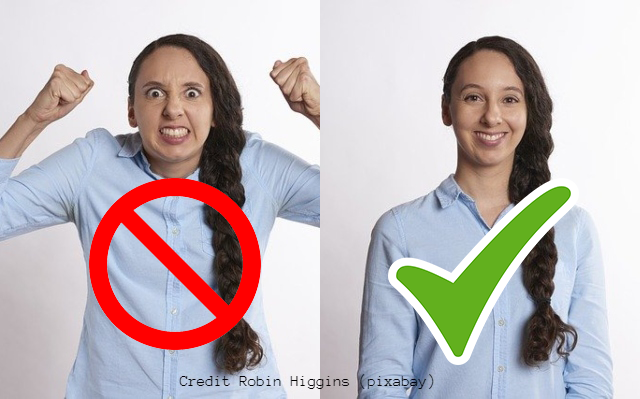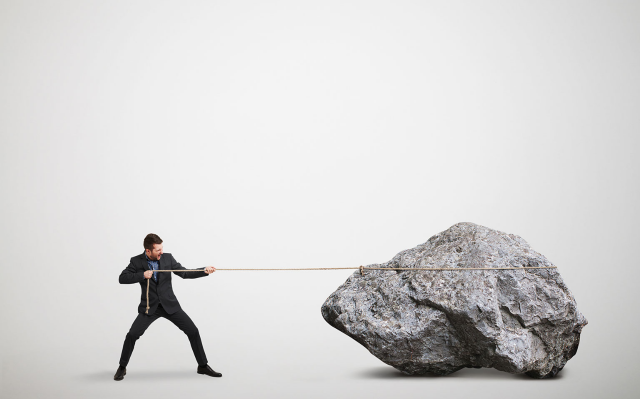
Stop Reacting, Start Responding
Dipti Pandey
- 0
- 590
I visit a café nearly every day to have coffee after my workout. After a few visits, the girl on the counter started recognizing me as a regular customer. Every time I am at the café, she smiles and places my order without even asking me, as she knows my choice well enough. The first time that happened, it impressed me as I happily took my coffee and lemon tart, a delicacy I relish.
As I sat sipping the coffee and eating my tart, l realized this has become an integral part of my evening routine, my evening was incomplete without it. It felt comfortable and safe!
As it happens on weekends, my schedule is often different. On one such weekend, there was a change in evening routine as I was going out with my family. Come Monday, after my workout, I was back to the café, for my favorite cup of coffee and tart. Assuredly assuming that my order will be ready as usual, I moved up the line only to find another person, a boy instead of my favorite barista. He gave me a puzzled look as I stalled taking in the change that had occurred causing a bit of delayed reaction from me. He did not know that I was there to pick up my order not to make one.
I was flustered a bit by the break in the comfortable arrangement that had developed over the course of some months.
Realizing that I have to start over, I told him my order. “Sorry, ma’am coffee is not available.” As if the change of barista was not enough, now my favorite coffee was unavailable too! It seems like a trivial matter now, but then I had felt flustered, even frustrated, so I pushed the tart towards the boy and yelled at him for not doing his job well. How could coffee not be available at a coffee shop? Unnecessary to say, I created a big fuss and walked out of the coffee shop, silently resolving never to return there ever.
To satiate my craving for coffee I went to another café but the coffee was an utter disappointment. Maybe because l got so accustomed to the coffee of the other café or maybe I missed the barista. Somehow, l finished the coffee and made my way out.
The incident had pushed me into a foul mood. As I drove home, I obsessed over my out-of-character reaction. I was engrossed in my thoughts and missed my friend waving at me across the road, as she needed a ride. I felt entitled to have had the reaction that I did in the café. Still, nothing could uplift my mood for the rest of the evening.
After a few days, l passed in front of the same café and saw the same girl on the counter. I entered hesitantly. I missed the café, the barista, coffee, and my favorite snack. The barista smiled as usual and asked why I had not visited for so many weeks. I smiled but did not mention my outburst from the other day. She placed my usual order. The café was empty so some chitchat ensued. In that casual conversation, she told about the arrival of the long-awaited new coffee machine that had arrived that day. She also told that it had been so embarrassing declining coffee orders from the regular customers. As l sipped my coffee, l relived the incident in my head and reviewed it.
I grasped that perhaps I was so rattled at the change in my comfort level that I did not even care to ask the boy the reason for the unavailability of the coffee.
I realized my mistake and felt ashamed and guilty for behaving so thoughtlessly. I could have responded in a much better manner, asked him the reason, and understood their plight and helplessness! That would have saved me too from the racing heart and unnecessary frenzy l went through in that hour that I ignored my friend, who needed the ride urgently. One agonizing reaction spoiled the day and nearly my friendship! My kind friend forgave me, but I remember how I omitted to tell her about my explosion at the café. I was so embarrassed at myself. It made me think and triggered me to think about how I could have handled it all. The lessons through this apparently small incident are still impactful for me. It provoked the following thoughts-
- When we react, we are giving away our power of doing something good. But when we are responding we are staying in control of ourselves
- Reacting is negative whereas responding is positive.
- Reacting is impulsive and is merely a drivel whereas responding is sensible sensitive and mature.
- Reaction is an emotional subconscious decision that is made without considering the consequences usually in haste. Commonly known as “knee jerk reaction”
- Response is the conscious effort to take a step back review the situation, attempt to figure out the probable cause and consider the available solutions.
I wish to share some of the ways l have started to follow, in order to inculcate responsiveness instead of reactiveness. It is changing my outlook and giving me the control to steer my emotions the way I like.
- Pause before you speak, give yourself some time
- Breathe deeply to relax your mind
- Identify what you are feeling
- Take note of your thoughts
- Acknowledge your triggers
- Authenticate your previous experiences
- Question yourself – is it right and necessary to say what am about to say
- Most importantly choose the right words and tone to express what you wish to, believe me it does make difference
- Respond in the manner that aligns with your personality and respects your boundaries too. It makes things easy to handle and maintains the beauty too!
Some instances that can justify my points-
A crying kid – instead of reacting in an angry tone “Stop crying right now” we could say, “What happened to my baby.” Responding can create a comfortable and safe environment for others.
Instead of getting angry with your spouse who did not take your call, we could say, “Is everything fine at your end, l was worried as you didn’t take my call.” So the message is also conveyed, but in a self-preserving way where your dignity and that of the other person is always maintained.
Briefly, l can say that by choosing convincing words, assessing the situation from other’s point of view, maintaining your calm can keeping the situation pleasant and smoother provide the method of responding that reacting. Reactions are commonly associated with thoughtlessness and an ill-dignified person, who can easily go out of control.
Next time when triggered to react, follow this simple process instead- pause, think, assess, and finally, respond.
If you can make sure, you follow the above process you will never ever give an unthinking reaction in your life.
Reference
https://www.tradebe.com/blog/safety/learn-to-respond-not-react


